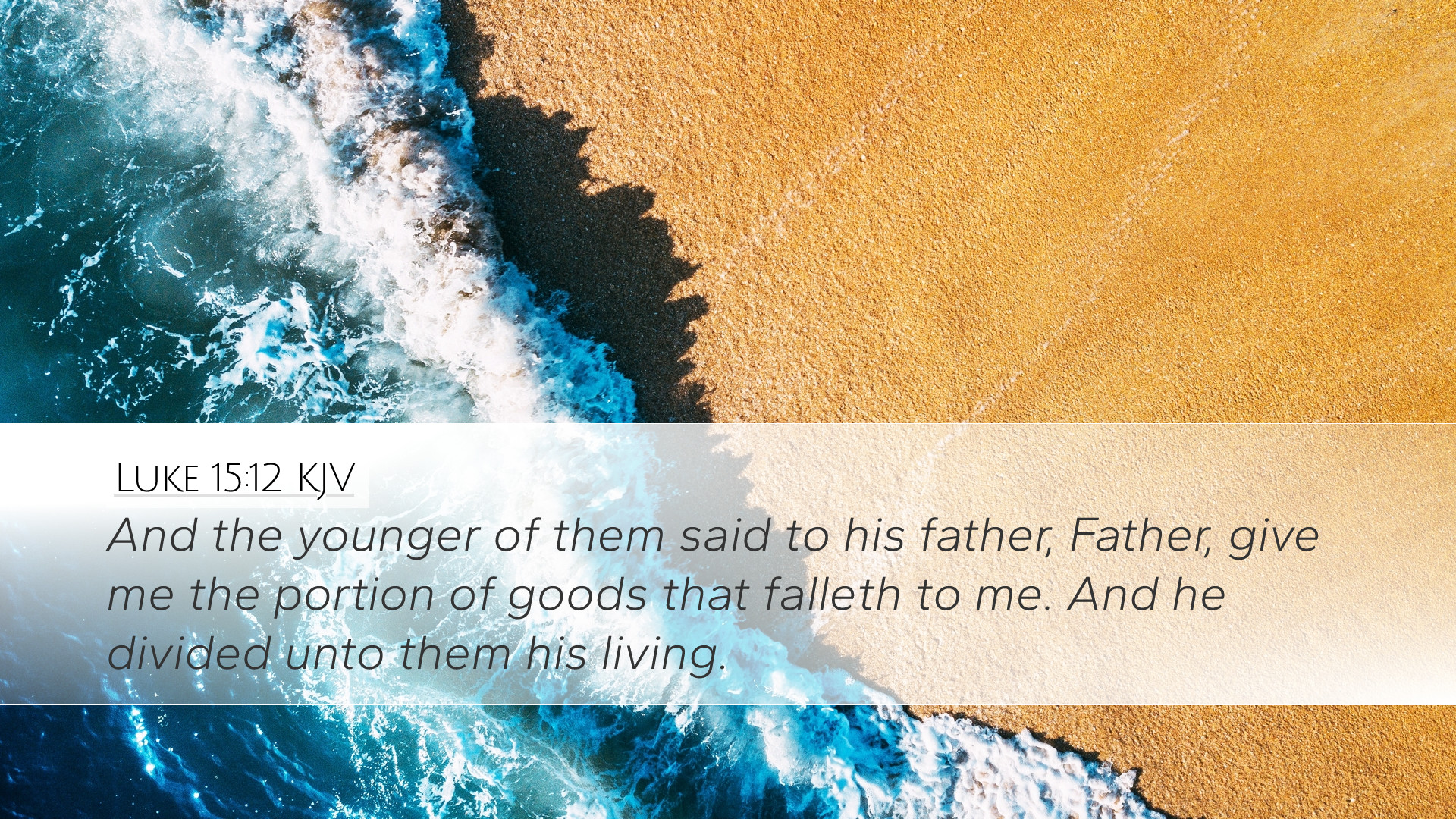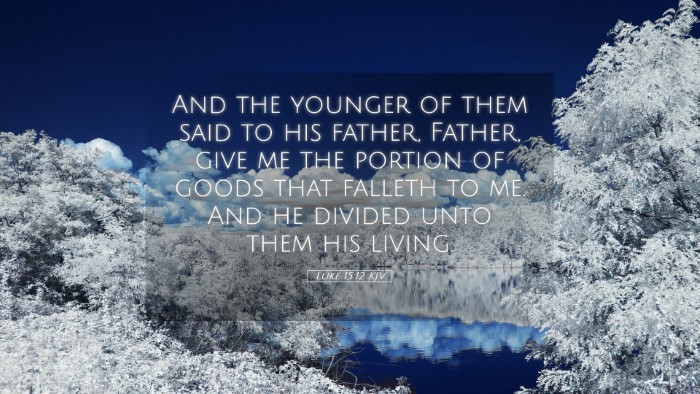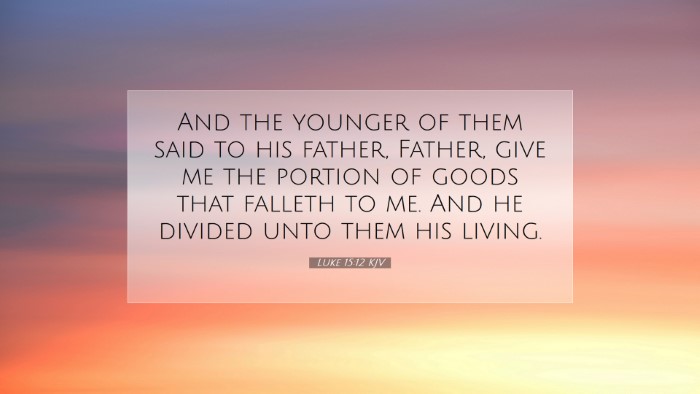Commentary on Luke 15:12
Verse: "And the younger of them said to his father, 'Father, give me the portion of goods that falls to me.' And he divided to them his livelihood."
Overview: This verse introduces one of the most famous parables in the New Testament—the Parable of the Prodigal Son. The request of the younger son to receive his inheritance before the father's death is audacious, laden with cultural implications, and highlights the themes of rebellion, grace, and redemption.
Contextual Analysis
Matthew Henry: Matthew Henry notes that this incident reflects not only a physical departure but a spiritual one as well. The younger son's demand symbolizes an estrangement from the father, indicating a desire for independence that many believers often exhibit. This speaks to the broader human condition of seeking separation from spiritual authority.
Albert Barnes: Barnes emphasizes the economic injustice of the son’s request, indicating how it was customary for sons to receive their inheritance only after their father's death. By demanding his portion, the son effectively wishes his father dead, demonstrating not only rebellion but also a deep disregard for familial relationships.
Theological Implications
Adam Clarke: Clarke delves into the spiritual metaphor represented in the son's actions. He suggests that the request for wealth symbolizes humanity's desire for material gain over spiritual fulfillment. The wealth that the son craves is ephemeral, illustrating the transient nature of earthly possessions. This serves as a caution to believers about prioritizing worldly over spiritual matters.
Parental Response
Matthew Henry: Henry points out the father’s unusual response to this request. Rather than expressing anger or indignation, the father complies. This act reveals God’s patient and gracious nature, where He allows individuals the freedom to make their own choices, even when those choices lead them away from Him.
Albert Barnes: Barnes highlights the significance of the father's willingness to divide his livelihood. This act can be seen as a reflection of God's grace, permitting sinners the autonomy to choose their own destiny, thereby upholding the principle of free will. This aspect fosters a deeper understanding of divine love, allowing the wayward to explore their paths.
Cultural Context
The request of the younger son can also be examined through the lens of first-century Jewish customs. In that time, inheritance laws were clear, and a son asking for his share while his father was still alive was both scandalous and disrespectful. Such behavior would bring shame not only upon himself but upon the entire family. This cultural background enhances the gravity of the son's rebellion against societal norms.
The Nature of the Inheritance
Adam Clarke: Clarke comments on the implications of the "portion of goods." The phrase signals both material wealth and spiritual blessings which God bestows upon His children. Clarke asserts that this parable teaches about the nature of inheritance in the kingdom of God, a promise that involves both responsibility and privilege.
Lessons for Believers
Matthew Henry: Henry advises readers to reflect upon their own desires and pursuits. The folly of the younger son is a mirror for believers, prompting introspection on whether their pursuits align with God’s will. The dangers of desiring independence from God are clear and should inform our daily choices.
Albert Barnes: He emphasizes the communal aspect of family and faith. The actions of the younger son serve as a warning to those who might prioritize personal gain over family harmony and spiritual truth. Believers ought to consider the broader impact of their decisions—how they resonate within the body of Christ.
Conclusion
Luke 15:12 serves as a powerful introduction to one of the most profound parables delivered by Jesus. It encapsulates human rebellion against divine authority, the nature of God’s grace, and the importance of recognizing the consequences of our choices.
For pastors, students, and theologians, this verse invites a deeper exploration of themes such as sin, redemption, and the nature of divine love. It calls for a reflective stance on our own life choices and the implications they hold for our relationship with God and others.
Ultimately, the parable transcends cultural and temporal boundaries, speaking to the heart of the human experience—the quest for belonging, the struggle against autonomy, and the hope of reconciliation.


